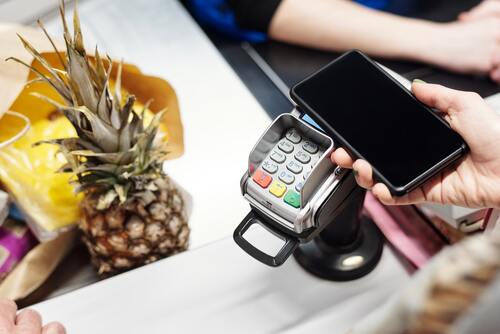La protection des données personnelles dans le viseur du service de médiation
Marie-Christine Caffet, médiatrice auprès de la Fédération bancaire française (FBF) depuis le 1er octobre 2018, se dit inquiète, dans le rapport 2019 du service de la médiation, au sujet de la protection des données personnelles. Elle déclare en introduction du rapport : « Le point marquant est celui de la proportion toujours plus élevée de dossiers de fraudes et d’escroqueries réalisées à partir des instruments de banque en ligne et affectant les moyens et opérations de paiement. »
Selon elle, la fraude opère sans distinction de catégorie socioprofessionnelle, d’âge ou de zone géographique : « Toutes les clientèles sont touchées, citadins comme ruraux, séniors comme jeunes actifs, propriétaires patrimoniaux comme modestes épargnants. » Même constat pour les établissements bancaires, qui sont impactés de la même façon « qu’il s’agisse de banques à réseau ou de banques en ligne, de banques privées, de succursales de banques étrangères ou d’établissements plus spécialisés. »
Les arnaques liées à « des imprudences » dans le codage des données personnelles des appareils utilisés par les clients sont nombreuses. Ainsi, smartphones et montres connectées présentent parfois des failles de sécurité, mais la médiatrice reconnaît également que les attaques sont de plus en plus sophistiquées et exploitent la moindre faille de sécurité.
En 2018 déjà, l’Observatoire de la sécurité des moyens de paiement recommandait plusieurs mesures de sécurité, comme des systèmes d’authentification forte, des analyses de risque poussées, et la mise en place d’un cadre contractuel visant à protéger les clients.
L’exemple d’une escroquerie par montre connectée
Le rapport annuel du service de médiation auprès de la FBF illustre son propos par quelques exemples d’escroqueries liées aux moyens de paiement : de l’arnaque via la récupération des données par un site se faisant passer pour Le Bon Coin à l’usurpation de l’identité de la banque du client par un mail frauduleux, les affaires sont variées et presque toujours liées à un usage des services bancaires en ligne.
Dans l’un des cas litigieux gérés par le service de médiation, c’est une montre connectée qui est à l’origine de l’escroquerie. Deux débits d’un montant total de plus de 2 000 euros ont été effectués à partir de cette montre, qui présentait une faille de sécurité. En effet, ce modèle ne disposait pas d’un système d’authentification forte impliquant la saisie d’un code ou l’analyse d’une donnée biométrique pour chaque transaction.
Des recommandations formulées aux clients
Les nouveaux moyens de paiement ne sont toutefois pas toujours directement en cause. Parfois, la faille de sécurité est liée à l’usage même qui en est fait par le consommateur.
Ainsi, dans son rapport 2018, l’Observatoire de la sécurité des moyens de paiement recommandait déjà aux clients de mettre régulièrement à jour le système d’exploitation de leur mobile, de choisir des codes de sécurité complexes, de n’utiliser que des applications de confiance ou encore de ne pas réaliser de paiement en cas de connexion non sécurisée, sur un réseau Wifi public par exemple.
